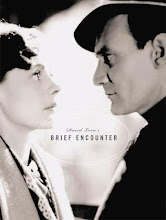There is a certain economy which defies psychological attribution. It is obvious that the story is about two individuals-may be leaning towards Lydia as the viewer feels that the camera sees through her eyes, especially the scenery and backgrounds. The continual industrial imagery with the claustrophobic skyscrapers and the constant search by moving across different places and pausing only to stare at random people only to look away when the eye meets the eye. It embodies her weltanschauung of sorts, and also her vulnerability, a strange aloofness with people with unwillingness to commit.
Psychologically, what does Antonioni attempt to present? It is not the society, it is not the person- may be, it’s two persons or if Tomasso’s death in the course of the movie could be seen as symbolic; a futile attempt to integrate oneself back in the society with all the distances I or you, may personally create. Tomasso looks like a scepter, especially on Lydia
Marcello Mastroianni plays the intellectual, and he is as suave as in other films of his, perhaps a role underplayed deliberately not unlike the subtle writer in 81/2. Every great actor has a mark that differentiates him from other great actors. For Anatoly Solonitsyn, is his casual charm, for Max Von Sydow it is the suffering etched into his face, for Gunnar Björnstrand it is his stoicism and similarly, for Mastroianni, it is that he bares his soul and can genuinely look lost. Totally, purposefully and innocuously. But Mastriani is lost on me for this movie, for I am bewitched by the actress-Jeanne Moreau with her beguiling face and sad looks. I cannot decide about her. There is something distasteful about that face, it hides years of age but then it looks so openly and cleverly you are not allowed to judge her while she judges and passes on. She plays the wife with a swiftness which suggests a pre-emptive ending of the story, and in the end of the film when she is smothered by her husband with kisses she cries out that she doesn’t love him anymore, repeating her earlier sentiment only this time it smacks of a peculiar detachment-eager to get away from the scene-but of course he doesn’t stop, and the movie ends there thus drowning her defiance with the greater power of the two in a marriage, or may be, backfiring in a confrontation in to buying a deal you had you decided you don’t want.





No comments:
Post a Comment